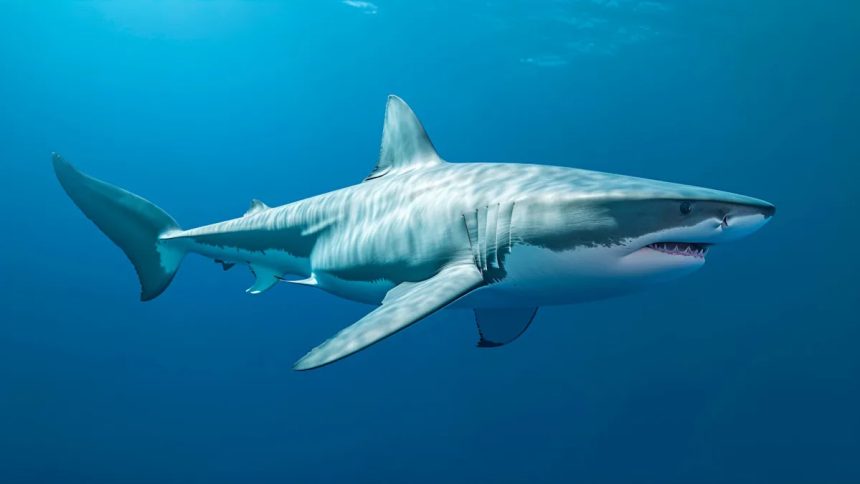A 14-foot Great White Shark has been filmed off of Block Island, marking the first time anyone has gotten verified underwater video of the species in Rhode Island waters.
The shark, a gorgeous female estimated to be a year old or so, was filmed in about 45 feet of water, 3 miles offshore, with a GoPro using herring as bait. The Institute has been deploying these cameras for 4 years without a sighting and likened the footage to finding a ‘needle in a haystack.’
At just 38 seconds, the video is brief, but it is absolutely stunning! The sheer size, grace, and power of this shark is undeniable, and you cannot take your eyes off of her!
People have been spotting great whites up and down the East Coast for years, but this verified sighting comes at a time when scientists are closely watching shark movements.
Warming oceans and shifting prey populations are changing migration patterns in so many different ways, and Rhode Island sits just south of Cape Cod–currently the East Coast’s Great White capital. Footage like this could suggest a broader habitat expansion, and have many different implications.
Jon Dodd, of the Atlantic Shark Institute, sees this as a hopeful indicator of the overall health of the Great White Shark population: ‘So, when you see these young great white sharks, it gives you hope. Numbers will grow, their numbers will grow, and we’ll find ourselves in a place where there are plenty of white sharks, and it’s a nice balanced environment.’
The Hidden Mystery of Great White Shark Reproduction
A great white shark swimming in shallow waterMark F Lotterhand via Shutterstock
For all we know about oceans, no one has ever filmed Great White Sharks mating. Scientists piece together fragments from scars, anatomy, witness accounts, and behavior, but the act itself has never been filmed. What we do know is this: females don’t reproduce until their 30s, after decades of survival. When they finally do, they give birth to just 2-17 pups, and only a fraction make it past their first years.
Even then, reproduction is painfully slow. Females can give birth only about every three years. It’s that combination of late sexual maturity, small litters, long gaps between pregnancies, and high pup mortality rate that make Great Whites especially vulnerable. Every individual shark lost is decades of potential recovery erased.
So, while this footage may not show anything people didn’t already suspect, it gives hope that the Great White Shark population is rebounding, which is important to everyone if we want a healthy ocean and a healthy world. Everyone should absolutely celebrate this sighting. For 400 million years, sharks have kept the oceans alive. Protecting them is our duty, because their future is our future.
This story was originally reported by PetHelpful on Oct 1, 2025, where it first appeared in the Pet News section. Add PetHelpful as a Preferred Source by clicking here.









